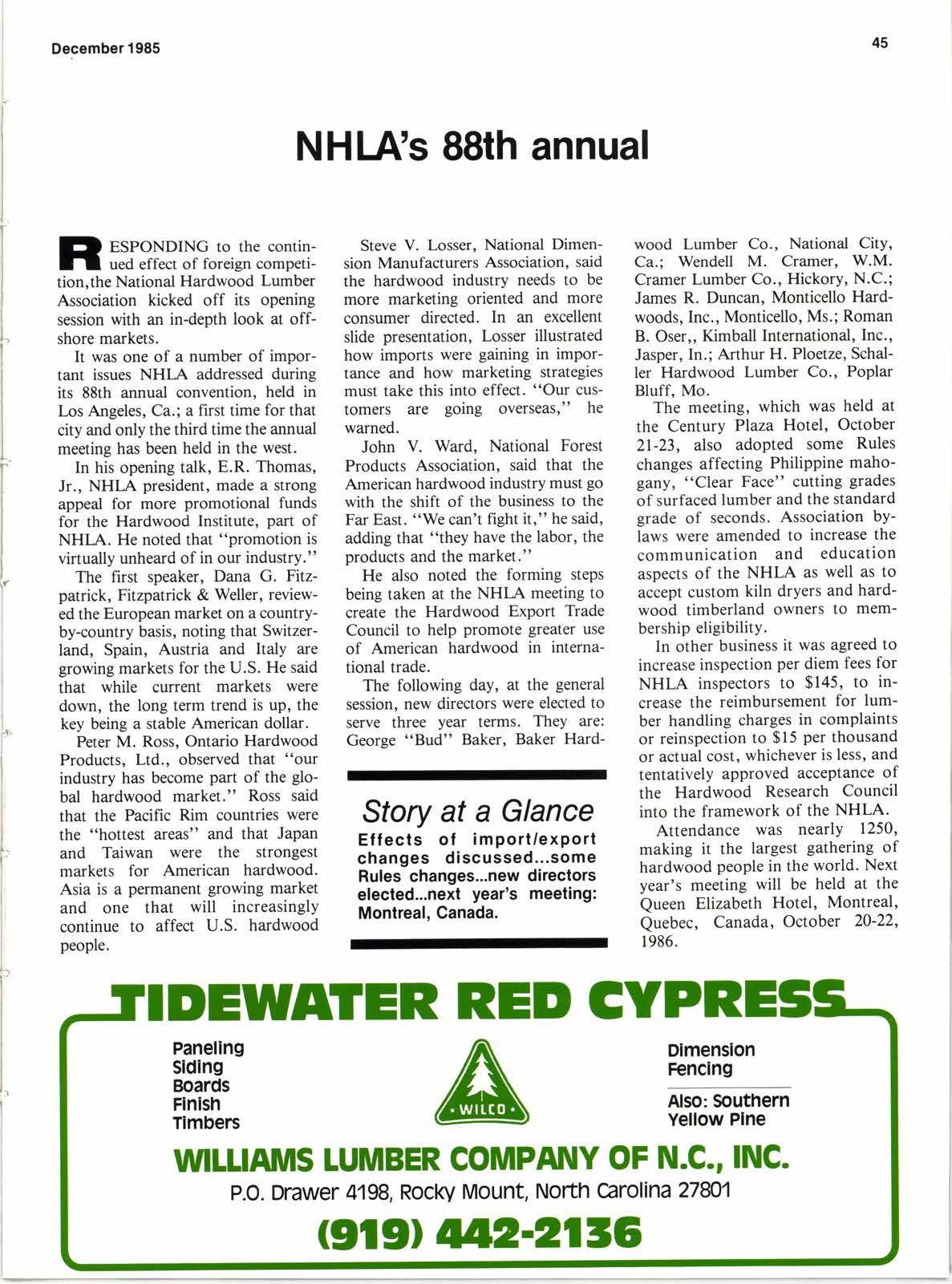
2 minute read
aX I r5fl.0':"'l;"s
years" where getting by was top priority with an expectation of improved-oP- lmproveo_opportunities in 1986; next year will be hore of the same. Those dealers located in areas of our country which are dependent on currently depressed industries such as agriculture, energy and certain manufacturing will have to rough it until improvements, out of the direct control of our industry, can occur. Other dealers who are currently doing well can expect continued good times.
Nationally, the industry is healthy' For most dealers, if 1986 is an instant replay of 1985, this will come as good news. Most Washington, D.C. economic gurus predict housing starts in 1986 to be in the 1.7 million range due primarily to stable mortgage rates and accommodative Federal Reserve policy. These analysts point to the Fed continuing to encourage economic srowth at a 3 to 490 GNP annual rate ittd, since there are no indications of a major inflationary upswing, the Fed can afford to monetarize the Federal budget deficit.
Being close to Congress, both figuratively, as a registered lobbyist, and literally, since our offices are two blocks from the Capitol, I must comment that little faith should be placed with the ability of Congress to control mounting deficits. Despite the hoopla associated with the Federal debt ceiling increase legislation last fall, tax reform, and continued call for a balanced Federal budget, it will be politics as usual in this town.
The classic confrontation between liberals defending social programs and big government and conservatives defending the military and no tax increases leaves little room for compromise. As usual, it will be up to the ingenuity and tenacity of the individual lumber and building material retailer to survive in spite of the presence of the United States government and all it entails.
1986 will be a year where consumer spending on home maintenance and improvement will continue to boom. The astonishing23s/o jump in the first
Story at a Glance
Fourlh consecutive recovery year lor housing and building supply industries...home maintenance spending will boom ...87o increase in doit-yourself spending.
quarter of 1985 for upkeep expenditures over the last quarter of l984is a clear indication that consumers are willing to dig deep into their pockets for home improvement projects. The numbers are truly staggering. Homeowners and property managers will spend approximately $83.1 billion for upkeep in 1985 according to rcnt economic statistics from the Commerce Department. Sixty perent of this figure consists of individual homeowners. Since in@me, employment, and economic statistics remain strong, there is no indication that homeowners will slow down in their home improvement spending. DGityourselfers repres€nt a large peroentage of the home upkeep business. Expect an increase in 1985 of about 89c over this year in do-it-yourself spending.
So, 1986looks like the classic mixed bag for our industry. Customer loydty will be essential in this very competitive business environment; profit margins will continue to be too narrow for business overconfidence and business conditions will remain steady for the next 12-14 months. If business is good in your area, smooth sailing is ahead; if business is bad, keep bailing!










